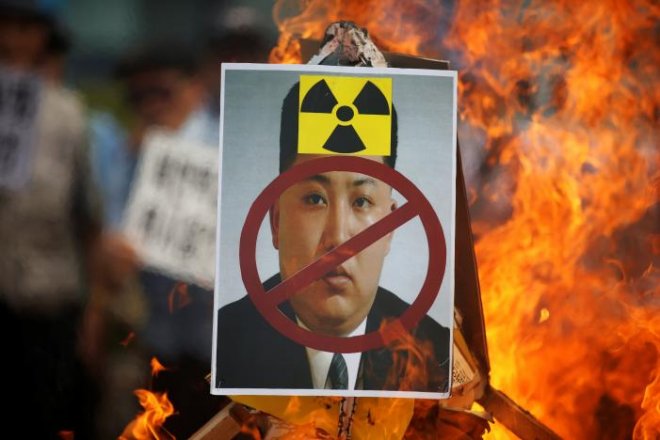
North Korean dictator Kim Jong-un has dismissed his spy agency chief after a so-called surveillance on high level state officers unveiled abuse of power, South Korean news agency Yonhap reported. The mercurial and secretive leader also ordered the summary execution of several top ranking officials, the report said.
Spy chief Kim Won-hong, 72, was removed from his position as the head of the Ministry of State Security and his rank in the military was demoted from general to major-general, officials at South Korea's unification ministry said. The charges of abuse of power levelled against the senior official by the ruling Workers Party are all but a euphemism for falling out of favour with the communist despot.
However, this time the official reasons for the purge quite ironically includes the unthinkable -- - human rights violations.
The incident happened in mid-January and the whereabouts of the sacked official are not known. The Yonhap cited officials as saying the investigation against Kim is underway and a proper punishment will be decided after the probe. In highly paranoid ruling echelons in North Korea, a fall from high positions is most often followed by quick death, usually by the firing squad.
"North Korea('s leader) dismissed Kim, his key aide who implemented his reign of terror," Jeong Joon-hee, a ministry spokesman, the South Korean official said.
The ousted official was seen as a close confidant of the young, reclusive leader. Kim Jong-un appointed Kim as the spy chief in 2012, a year after he became the Supreme Leader. North Korea's security ministry has crucial role in propping up the dynastic rule and its main task is the brutal suppression of reactionaries. It also oversees extreme political watch and vetting and supervises prison camps.
Kim was one of the insiders of the regime who orchestrated the 2013 execution of Jang Song-thaek, the uncle of Kim Jong-un. The workers' Party probe followed simmering agitation in the rank and file. The execution of several top officials is seen as a two-way strategy by Kim -- to consolidate his reign of terror and at the same douse public discontent over the repressive rule.
"There is growing public discontent and fear over the leader's repressive rule. The dismissal appears to be aimed at easing complaints from North Koreans and showing that the leader cares for his people," a top South Korean official told Yonhap.
"Instability in the North Korean regime is likely to increase as the elite members may become agitated and the regime's control over ordinary North Koreans could weaken," he added.
Kim has executed more than 100 senior military, party and government officials after he took power. Political analysts who watch North Korea say the killings and purges are likely to go on as Kim wades along. "He is likely to conduct numerous purges and overhauls that can shift responsibility for poor past performances to bureaucrats this year," a report by the Institute for National Security Strategy said.








